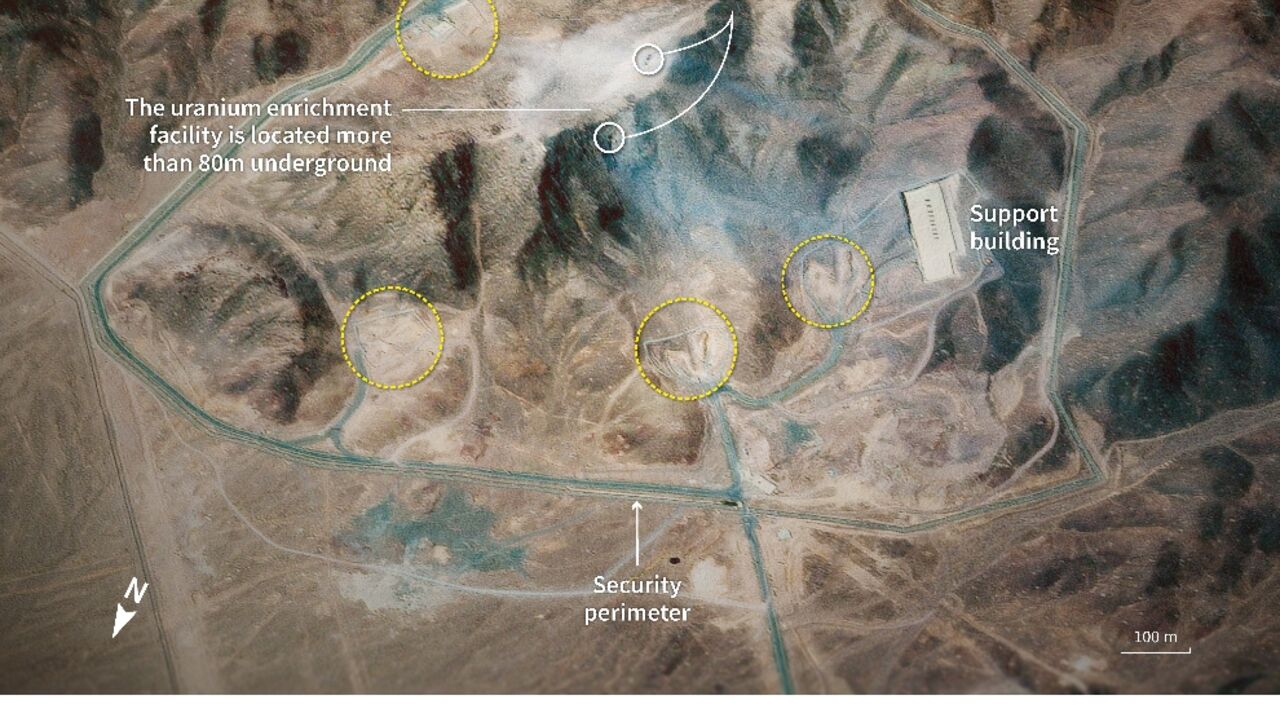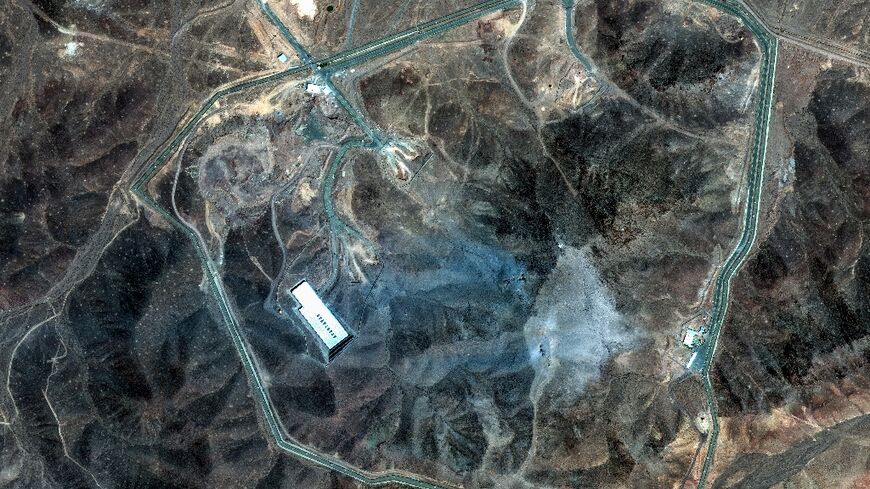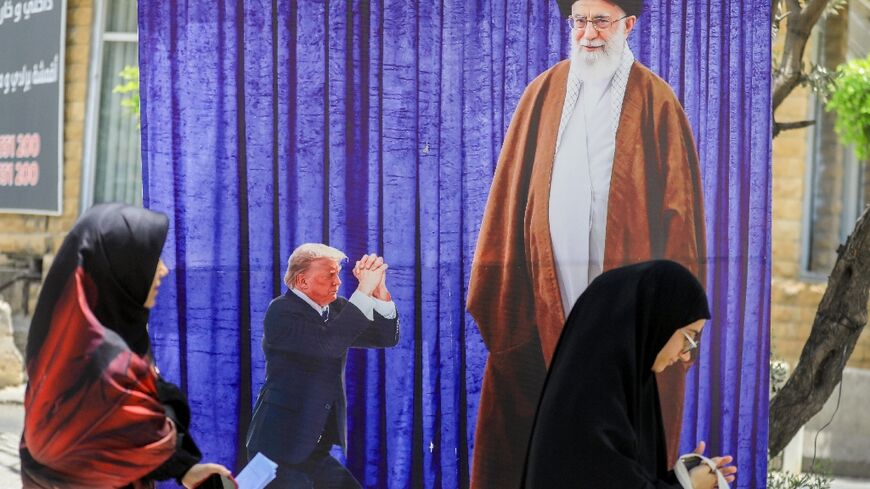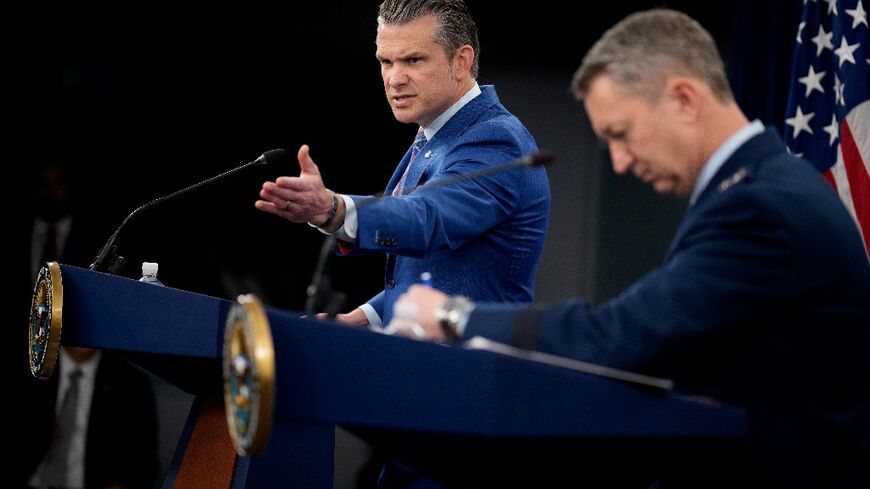Iran-Israel war: latest developments

Classified US intelligence suggests that American strikes on Iran set back its nuclear programme by just a few months, contradicting President Donald Trump's claim of total destruction.
Here are the latest developments as a truce between Iran and Israel appeared to be holding early Wednesday:
- US intel report -
US media on Tuesday reported that a classified US intelligence document had concluded that American strikes last weekend did not fully eliminate Iran's centrifuges or stockpile of enriched uranium.
B-2 bombers hit two Iranian nuclear sites with massive GBU-57 bunker-buster bombs while a guided missile submarine struck a third with Tomahawk cruise missiles.
Trump initially said the attacks had "obliterated" the nuclear sites while Defense Secretary Pete Hegseth said Washington's forces had "devastated the Iranian nuclear programme".
But a preliminary report by the Defense Intelligence Agency said the bombings sealed off entrances to some facilities without destroying underground buildings, according to US media, which cited sources familiar with the findings.
Trump rebuffed the media reports.
"THE NUCLEAR SITES IN IRAN ARE COMPLETELY DESTROYED!" the president posted on his Truth Social.
White House Press Secretary Karoline Leavitt has confirmed the assessment was authentic but said it was "flat-out wrong and was classified as 'top secret' but was still leaked."
"The leaking of this alleged assessment is a clear attempt to demean President Trump and discredit the brave fighter pilots who conducted a perfectly executed mission to obliterate Iran's nuclear programme," Leavitt posted on X.
- Iran-Israel ceasefire holds -
A US-proposed ceasefire between Israel and Iran appeared to be holding early Wednesday.
Israeli Prime Minister Benjamin Netanyahu hailed a "historic victory" in the 12-day conflict.
In a national address Netanyahu vowed to thwart "any attempt" by Iran to rebuild its nuclear programme, which armed forces chief Lieutenant General Eyal Zamir said Israeli strikes had set back "by years".
Iranian President Masoud Pezeshkian hailed his nation's "heroic resistance" in a message carried by the official IRNA news agency.
Pezeshkian has said Iran will respect the ceasefire as long as Israel holds to its terms, adding that Tehran will continue to "assert its legitimate rights" to the peaceful use of atomic power but was "ready to resolve the issues... at the negotiating table".
- Final salvos -
Israel "refrained" from further strikes on Iran on Tuesday after a call between Trump and Netanyahu, the premier's office said, though it did destroy a radar installation.
Trump had accused both Iran and Israel of violating the ceasefire he announced late on Monday, but hours later he posted that it was in effect.
"Following President Trump's conversation with Prime Minister Netanyahu, Israel refrained from further strikes," a statement said.
Iran's state media said on Tuesday that a wave of missiles was headed towards Israel around the time the ceasefire was expected to take hold.
Israeli emergency services later said four people were killed in a missile strike in the southern city of Beersheba.
At least 50 impacts have been acknowledged across Israel since the war began, and 28 people have been killed, according to official figures.
Israeli strikes on Iran have killed at least 610 civilians, Iran's health ministry said on Tuesday.
- International relief -
After mounting fears of regional spillover, the international community breathed a sigh of relief at the apparent Iran-Israel truce.
Trump, who had previously toyed with "regime change" in Iran, rejected the idea en route to a NATO summit in the Netherlands.
"If there was, there was, but no I don't want it. I'd like to see everything calm down as quickly as possible," Trump told reporters aboard Air Force One.
Meeting Trump on the sidelines of the summit on Tuesday, Turkish President Recep Tayyip Erdogan "expressed his satisfaction with the ceasefire achieved between Israel and Iran through President Trump's efforts, hoping it would be permanent," his office said.
Russia and Germany are among the other countries to hail the truce.
burs-kir/mjw/pst



